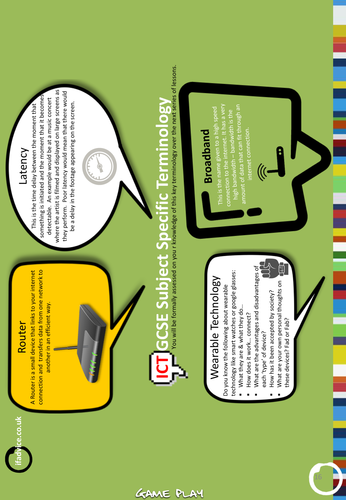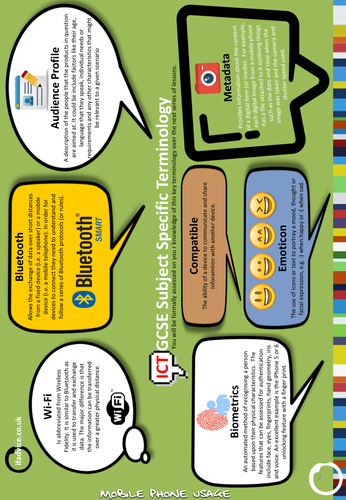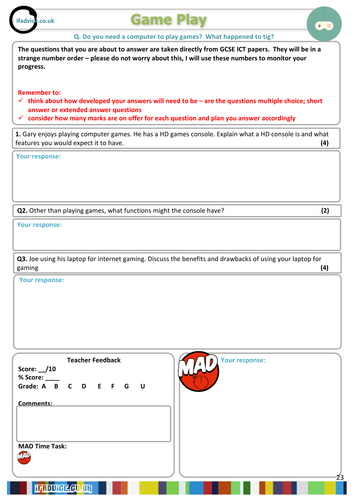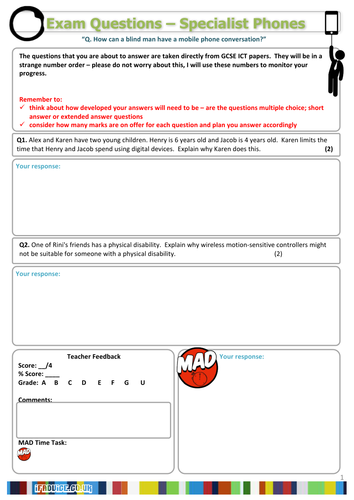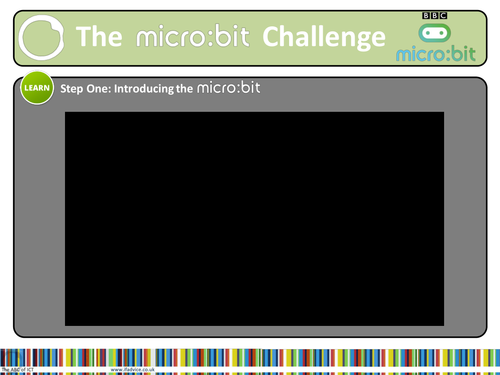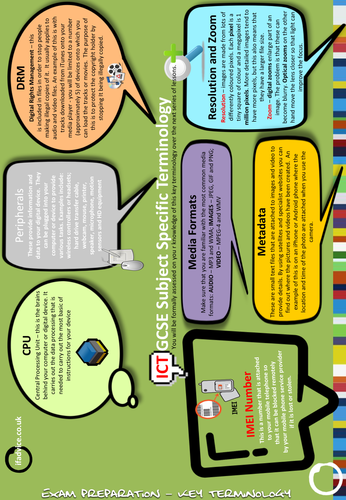
192Uploads
42k+Views
3k+Downloads
Computing

GCSE ICT Chunking Revision Prompts
I have used 'chunking' as a revision method for a long period of time in order to get students to 'learn and remember' the key terminology that needs to be recalled during examinations. Chunking is the process of breaking up large pieces of information in to smaller chunks and I use it over a short period of time, to get students to concentrate on the recall of keywords right before their examination periods.
The attachment is used over the last two weeks of examination preparation - students are given one page to learn and recall over a two day period. I then used diagnostic tools to test the students ability to recall the information given a variety of different stimuli questions.
Used in conjunction with the mind maps (found on TES), these compact the information that students struggle to retain from the mind map framework.

Edexcel GCSE ICT Theory Mind Maps and Question Bank
These resources are summary mind maps that can be used in isolation at the end of a topic or as a revision tool at the end of a course. They can be used appropriately as formative or summative activities.
Each mind map has associated past paper questions and questions taken from, or inspired by the course workbooks and revision guide. I have confirmed with Pearson that i have permission to share these resources with other teachers and students.
The topics include: Personal Digital Devices, Connectivity, Operating Online, Online Communities, Online Goods and Services & Issues. And questions are in three colour columns (1 mark - blue; 2 marks - orange; 3/6 marks - purple).
I tend to use these resources for group work tasks where students get a series of points for the methods that they have used to work out the answers. The resources are printed/designed for A3 and students get 3x the marks for knowing the answers without the use of mind-map or research. 2x the marks for using the mind maps and 1x the marks for utilising online research methods to work out the answer. Going through the solutions is done via the medium or a walking-talking exam. At the end of the session, I photograph and e-mail a copy of the completed questions to the class and individuals take home their own blank copy of the activity sheet to work on and target their own misconception or gaps in knowledge.
I have also added a black and white version in order to save on printing costs for colleagues.
UPDATE: Amended questions for Online Goods and Services 2.
UPDATE 2: Now included is a simple spreadsheet to document team progress.

Spreadsheet Lesson 1
Spreadsheet Lesson 1 (Follow ‘ThornleighSalesianCollege’ to access Aurasma
This is a series of worksheets that I have used teaching ICT and Computer Science throughout KS3 and GCSE ICT.
Please note that the ‘follow’ is the account that we use within school - every department uses the same account, therefore the students only have to ‘follow’ one channel and the triggers will automatically be picked up.

Spreadsheet Lesson 3
Spreadsheet Lesson 3 (Follow ‘ThornleighSalesianCollege’ to access Aurasma
This is a series of worksheets that I have used teaching ICT and Computer Science throughout KS3 and GCSE ICT.
This worksheet shows how Aurasma can ‘do the teaching for you’. All I do is produce the video and students work through it at their own pace.
Please note that the ‘follow’ is the account that we use within school - every department uses the same account, therefore the students only have to ‘follow’ one channel and the triggers will automatically be picked up.

Python Programming Lesson 4 (Year 7 or younger) - BIDMAS Mathematical Operators
Python Programming Lesson 4 (Year 7 or younger) - BIDMAS Mathematical Operators
A development from lesson 3 based on BIDMAS Operators. This introduces them along with the use of double brackets for multiple calculations (to determine an logical order, as opposed to the BIDMAS order) with linked examples and exercises for each.. This is the fourth lesson that is progressive, following a scheme of learning that will be published as an overview with the final lesson of the unit.
Lessons can purchased individually or as a package. Lesson duration approximately 50-60 minutes.
This lesson also includes links to a personalised Kahoot diagnostic assessment (free sign-up).

Python Programming Lesson 3 (Year 7 or younger) - Strings and Variables.
A development from lesson 2 based on Strings and Variables. Introduction to strings and variables with linked examples and exercises for each.. This is the second lesson that is progressive, following a scheme of learning that will be published as an overview with the final lesson of the unit.
Lessons can purchased individually or as a package. Lesson duration approximately 50-60 minutes.
This lesson also includes links to a personalised Kahoot diagnostic assessment (free sign-up).

Python Programming Lesson 5 (Year 7 or younger) - #Hashtags
Python Programming Lesson 5 (Year 7 or younger) - #Hashtags
A development from lesson 4 based on #hashtags and their use within a script. Introduction to #hashtags with linked examples and exercises for each.. This is the fifth lesson that is progressive, following a scheme of learning that will be published as an overview with the final lesson of the unit.
Lessons can purchased individually or as a package. Lesson duration approximately 50-60 minutes.
This lesson also includes links to a personalised Kahoot diagnostic assessment (free sign-up).

Questions to prompt dialogue Worksheet
Questions to prompt dialogue
I use this to prompt discussion and even written work with students. This has been particularly useful with extended writing tasks.

Python Programming Lesson 6 (Year 7 or younger) - Assessment lesson
Python Programming Lesson 6 (Year 7 or younger) - Assessment lesson
This is a two-part assessment of the work completed within this block of work. This is the final lesson of a progressive learning programme, following a scheme of learning that will be published as an overview with the final lesson of the unit.
Lessons can purchased individually or as a package. Lesson duration approximately 50-60 minutes.
This lesson also includes links to a personalised Kahoot diagnostic assessment (free sign-up).

Edexcel GCSE ICT - Mopping Up - Final bits of the specification [Revision]
This series of resources is aimed at being delivered over a series of 2-3 lessons. In the first lesson I go through the lesson content and provide students with the chunking words for the lesson and the associated 'exam questions' for homework.
Chunking section - this is a selection of 3-7 words is subject specific terminology that I assess in a range of different ways: spelling tests; word searches; crosswords; online quizzes; diagnostic questions etc. The idea being that students can learn and retain a small number of words/meanings or data at any one time. This is based on the educational research concept of: Herbert Simon http://www.human-memory.net/types_short.html
Lesson content - This worksheets covers the topic: Mopping Up. I can supply accompanying PowerPoints on request free of charge, but I don't want to put these up here as I have worked on producing them with my colleague. This package of work and worksheets can be used as teaching and learning resources of as revision activities with individuals, small and large groups - targeting misconceptions through appropriate intervention.
Homework - the homework is based on examination questions from past paper exam and the course revision book. The questions are used with permission from Edexcel and Pearson. At the foot of each homework is the opportunity to feedback to the students in the form of percentage achieved, grade (in relation to target grade) and written feedback. I set a 'MAD (Make A Difference) Time' activity for each piece of work in the form of an intervention or extension task.

GCSE ICT Key Terminology Poster 16
GCSE ICT Key Terminology Poster 16 - used around the classroom to help students learn the key terminology related to each topic covered.

GCSE ICT Key Terminology Poster 2
GCSE ICT Key Terminology Poster 2 - used around the classroom to help students learn the key terminology related to each topic covered.

BBC Micro:bit (Microbit) lessons 2
I have been using these lessons challenges with a series of groups and they appear to have been really well received.
Like many professionals, I have been trying to get to grips with the Micro:bit and find resources or lessons for my students to have a go at. There are loads around and this is a collection of progressive tasks that I think have been put together in a really coherent way for the teenage mind. Each one is a video tutorial which will guide your students through each step and provide them with the theory behind each decision made in the program.
Includes 'Loops'.
I would love to know your thoughts and I will add more, as and when they arrive.
I have used this resource over three lessons... a great filler once the students get to grips with it.
This also now includes a Python activity as well as Block Editor challenges.
in terms of assessment and monitoring progress... I have been keeping a very simple spreadsheet and inputting when the student has been to show me their finished task - this means that I can open a dialogue with the student and find out what they found easy/difficult with the task, as well as being able to redirect them onto another task or target misconceptions.

GCSE ICT Key Terminology Poster 18
GCSE ICT Key Terminology Poster 18 - used around the classroom to help students learn the key terminology related to each topic covered.

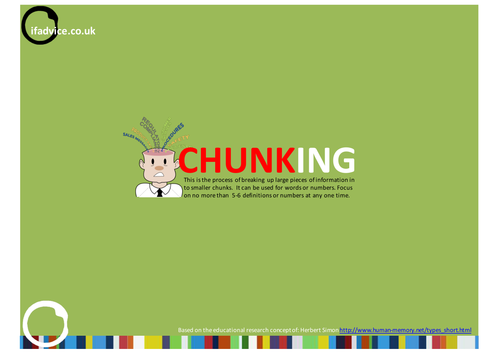
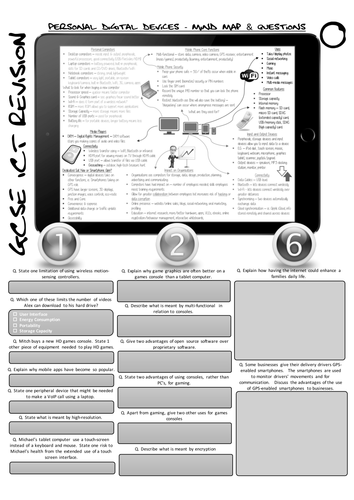
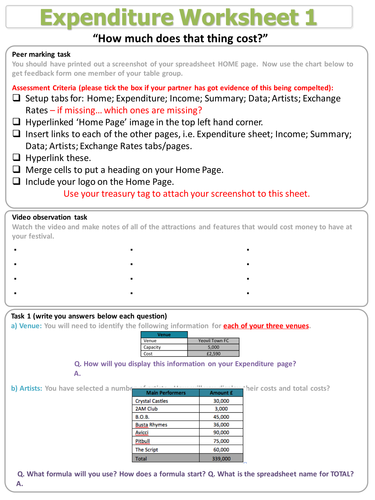
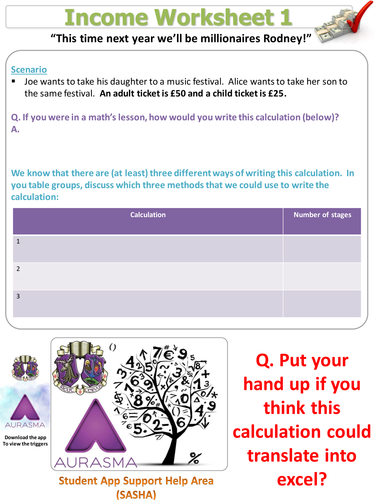
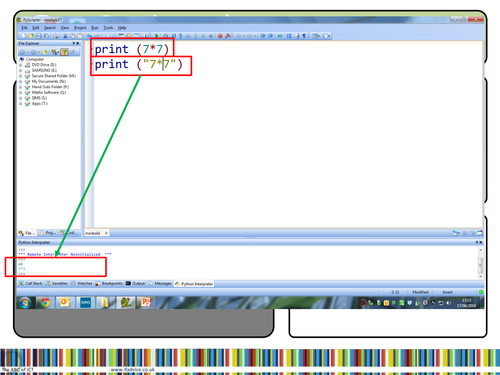
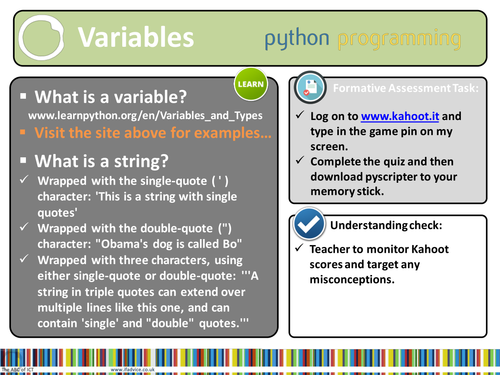
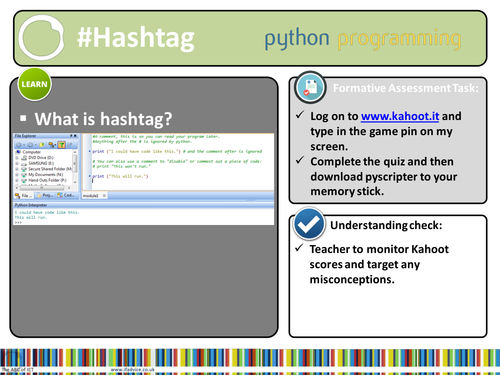
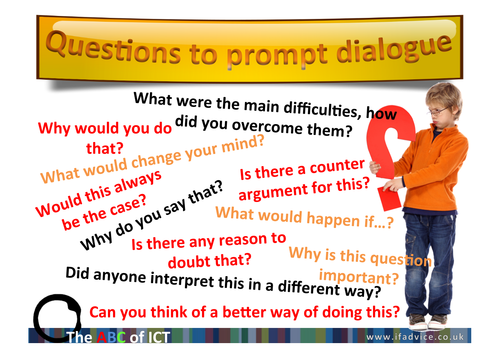
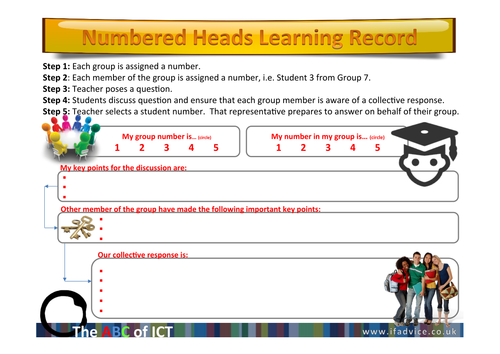
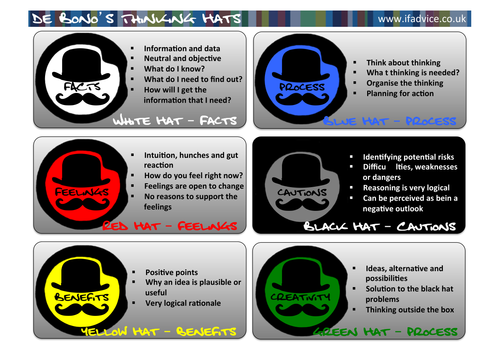
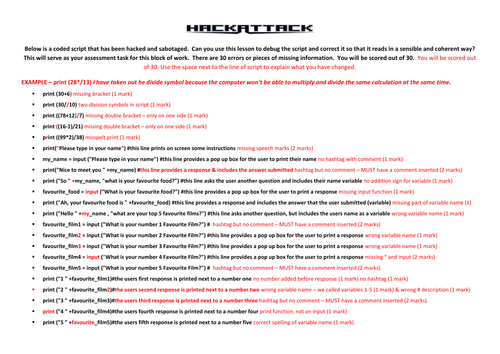
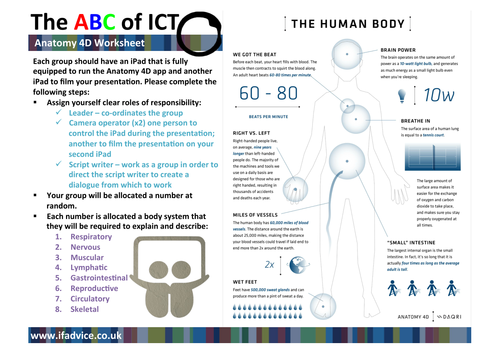
![Edexcel GCSE ICT - Mopping Up - Final bits of the specification [Revision]](https://dryuc24b85zbr.cloudfront.net/tes/resources/11295436/image?width=500&height=500&version=1593519471372)
